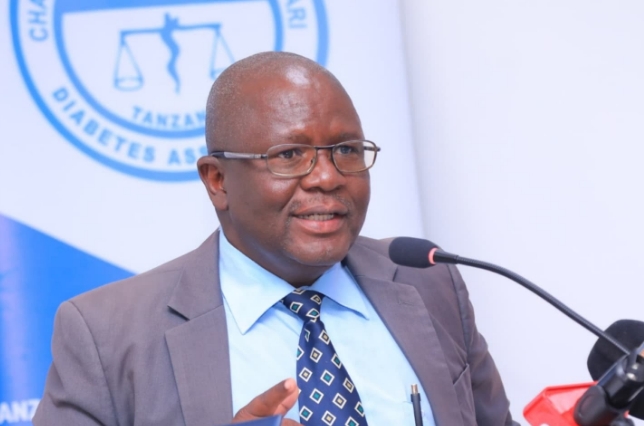DODOMA: THE government, through the Ministry of Health, has called on the public to take appropriate measures to protect themselves against diabetes and other Non-Communicable Diseases (NCDs) by adopting healthier lifestyle.
The government made the call as the world observed World Diabetes Day on Thursday, an opportunity to raise awareness about diabetes as a critical global public health issue and emphasise the collective and individual actions needed to improve the prevention, diagnosis and management of the condition.
Ministry of Health’s Director of Administration and Human Resources Issa Ng’imba made the call in Dodoma recently on behalf of the Permanent Secretary of the docket Dr John Jingu at the closing of a working session for directors of administration, human resources, policy directors which aimed at discussing ways to prevent and control NCDs in the workplace.
Mr Ng’imba said that there is a need for every individual Tanzanian to take appropriate steps to prevent diabetes by changing their lifestyle and adopting a proper diet, which includes vegetables, fruits, whole grains and avoiding foods high in sugar, salt and fat.
He said that following the rising cases of NCDs in the country, there is a need to increase public awareness on ways of preventing the diseases and encourage lifestyle changes such as making regular physical exercise, avoiding bad eating habit and inactivity.
ALSO READ: Exercise urged as key to combating rising lifestyle diseases
“NCDs contribute significantly to the high mortality rate, reduce the quality of life and affect families, communities and the economy at large. Therefore, it is our responsibility to ensure that we establish strong policies and strategies to prevent, early detection and treat these diseases as earlier as possible,” said Mr Ng’imba.
He also said that NCDs such as hypertension, cancer, oral and dental diseases, diabetes and mental health challenges require urgent and collective action to ensure the nation remains safe.
For his part, the Director of Medical Services at the Ministry of Health, Dr Hamad Nyembea said that the two-day meeting was aimed at strengthening strategies for controlling the increase NCDs, which have continued to be a major challenge in communities worldwide.
“The goal of involving 15 ministries is because NCDs are cross-cutting and we need the participation of all ministries to address this challenge,” he said.
Last month the government unveiled a robust strategy to combat the rising prevalence of Non-Communicable Diseases (NCDs), particularly diabetes, as part of its fifth health sector plan.
Deputy Minister for Health, Dr Godwin Mollel outlined several key initiatives, including public education campaigns about diabetes prevention through health education programmes that promote healthy eating, regular physical activity and avoidance of harmful substances like alcohol and tobacco.
According to the World Health Organisation (WHO), about 830 million people worldwide have diabetes, the majority living in low-and middle-income countries. More than half of people living with diabetes are not receiving treatment. Both the number of people with diabetes and the number of people with untreated diabetes have been steadily increasing over the past decades.
World Diabetes Day is marked on every November 14. The theme for this year is “Breaking Barriers, Bridging Gaps,” which underpins our commitment to reducing the risk of diabetes and ensuring that all people who are diagnosed with diabetes have access to equitable, comprehensive, affordable and quality treatment and care. Join us in raising awareness, spreading knowledge and creating lasting change for all affected by diabetes.

Leave a Reply